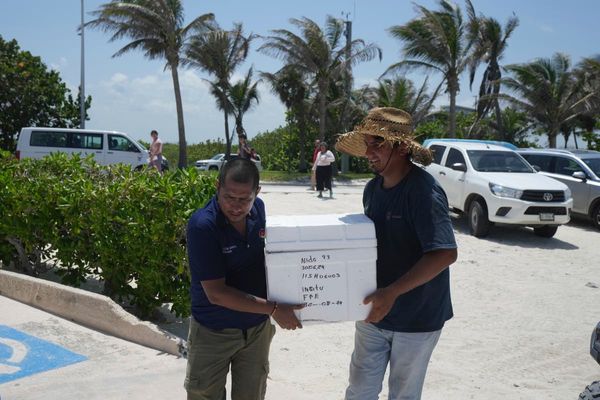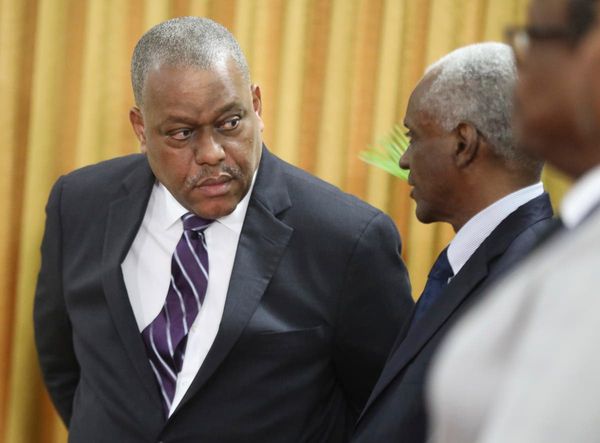The process behind the awarding of lucrative contracts worth nearly $750 million to Accenture for the operation of My Health Record was “deficient” and plagued by poor planning and a failure to comply with procurement rules, according to the national audit office.
The agency responsible inappropriately relied on limited tenders and failed to justify value for money in the sprawling deals that have stretched over 12 years while the clunky platform struggled to gain adoption.
The audit has delivered more than a dozen specific recommendations and is urging other agencies to have adequate planning in advance of the expiry of their own contracts.
It will also raise more questions about Accenture, which has been behind other struggling tech projects like visa processing, business registers, Defence’s cloud computing and vetting system, and has the reigns of a critical national skills passport.

The Australian National Audit Office’s (ANAO) report into the procurement of My Health Record (MHR) was tabled on Wednesday afternoon, with a focus on the contracting of Accenture as the National Infrastructure Operator of MHR since 2012.
MHR is a national public system aiming to improve the availability and quality of health information, with about 23.8 million Australians now having a record. The Australian Digital Health Agency (ADHA) has been responsible for the scheme since 2016.
Accenture was awarded a contract to be the National Infrastructure Operator for MHR in 2012, which saw it become responsible for the operation, maintenance, support and integration of MHR national infrastructure.
This contract was initially worth $47 million over two years. The audit found that Accenture’s contract has been varied 13 times since 2012, increasing its value by $699 million, and twice extended through a tender process where it was the only company able to apply. The Accenture contract now runs until mid-2025.
The ANAO report was particularly scathing of the awarding of these variations and extensions, finding they occurred with insufficient assessment of risk, consideration of materiality and justification of value for money.
It also found that the decision to not approach any other potential providers when Accenture’s contracts were renegotiated was in breach of Commonwealth Procurement Rules.
The ANAO found that the procurement and contract management was “partly effectively”, the governance framework was largely fit-for-purpose, the management of the Accenture contract was “partly effective” and procurement for the work was not done effectively.
Accenture’s contract was extended in 2014 to run until 2016, increasing in value by $49 million. It was extended again in 2015 to run until 2018, with an $87 million boost. In 2017, the ADHA approved a third extension to continue Accenture’s contract until 2020, with an extra $159 million provided.
Along with these extensions, from 2012 to 2017 an extra $164 million was added to the contract through a series of contract variations.
After exhausting all the extension options, the ADHA was required to conduct a procurement process in 2019 for the MHR work.
But this was done through a limited tender process that was open only to Accenture, with the new contract implemented through an amendment to the existing 2012 contract. This saw the deal extended for another two years with $82 million added.
The same process was conducted in 2022 with Accenture again being the only provider approached. The tech services firm landed an extension to 2025 worth an extra $105 million.
Along with this, the contract amount was varied six times from 2018 to 2023 to a value of $53 million.
The ANAO found a number of significant issues with the processes behind these contract extensions and variations, and identified concerns around the decision to twice only approach Accenture when going out to tender for the lucrative work.
The audit said the ADHA’s procurement processes in 2019 and 2022 were “deficient”.
“Contract variations within the existing contract term have been made with insufficient assessment of risk, consideration of materiality and justification of value for money,” the ANAO report said.
“The management of contract performance has not utilised all available levers under the contract.
“ADHA’s planning and decisions about how to approach the market for the contract in 2019 and 2022 were deficient. For both sole source tender procurements, ADHA’s conduct of limited tender processes…was also deficient.”
In 2019, the ADHA did not consider whether continuing to outsource the core infrastructure represented value for money, and there was a limited assessment of risks.
In 2022, a risk assessment was conducted which identified four “high” or “very high” risks, all of which exceeded the risk appetite, and none of which were accepted.
Under the Commonwealth Procurement Rules (CPRs), the decision to conduct a limited tender must be adequately justified.
In 2019, the ADHA said it did not open up the tender due to “extreme urgency brought about by events unforeseen by the relevant entity”, but the ANAO said that reliance on this clause was “inappropriate”.
“The situation was not one of extreme urgency and the events were foreseeable,” the audit said.
“The justification to use direct source limited tender because a previous procurement process had been competitive was inappropriate and not consistent with the CPRs.”
The same justification was used in 2022 when a limited tender was again conducted, along with a claim that there were “no reasonable alternatives”.
A number of the Accenture contract variations were also not reported in line with the procurement rules, with some not separately reported, others reported outside of the 42-day deadline and incorrect reporting of limited tender procurement conditions.
The audit also identified a number of issues with the management of Accenture’s ongoing contract.
“The identification and assessment of commercial risk has been limited,” the report said.
“The effectiveness of day-to-day administration of the contract is diminished by contract management planning that is not fully fit for purpose.”
The ANAO also found that much of the payments made to Accenture for its MHR work were made in advance of the work actually being completed. In 2018-19, 90 percent of payments to Accenture were in advance, which declined to 60 percent of the last three years.
“Advance payment creates the risk of weaker leverage to enforce performance requirements,” the audit said.
The ANAO made 13 recommendations to the ADHA around the management of risks, contract variations and records, review of contractor deliverables, procurement planning and AusTender reporting.
The ADHA agreed in full to 12 of these recommendations and agreed in principle to the recommendation that an open tender process be conducted when Accenture’s contract comes to an end in 2025.







